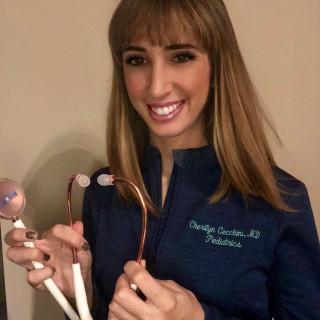
As physicians, we are often warned about the dangers of utilizing social media. We are encouraged to avoid engaging in any activity on social media given the potential to violate the Health Insurance Portability and Accountability Act, better known as HIPAA. HIPAA ensures privacy and security provisions for safeguarding medical information. It is true that HIPAA is a very important regulation. However, it is still possible to utilize social media in a safe and effective way, while not violating these regulations. More so, it is possible to utilize social media to enhance patient care and ultimately expand patient education on a grand scale.
The lens of the world today is through a screen of some sort, whether that is a computer screen or a cellular phone screen or the screen of a tablet. Patients have easy access to endless amounts of information via the internet and often they will read about their health care or health conditions online prior to consulting a physician. The sources may or may not be credible and often, they aren’t, since navigating the large minefield of medical literature is burdensome even for the experienced medical professional. It is not surprising that the average internet browser will access easy to read articles that may or may not have citations. Most individuals do not receive training related to deciphering an article and properly interpreting and applying evidence-based medicine. Furthermore, most do not have access to many of the academic sources that physicians or others in healthcare do.
Rather than discourage patients from accessing the internet or perusing social media when we know that they will regardless of our advice, why not utilize this avenue as a method of connecting and educating our patients as physicians? I have found that as I have engaged more with my audience as a pediatrician via social media, I have been able to appropriately answer questions and provide sources of education that parents especially appreciate. I have posted “blog” like articles on Instagram, where I reach an audience of more than 100,000 followers, who can directly send messages to my account. Then I can take the time to meaningfully compose responses, thus connecting with them almost immediately.
Through social media, I can blog about relevant issues and post advice for my patients. By disclosing that views are my own, patients understand that my writings are uninfluenced and do not reflect the broader view of any institution. I have received an incredible amount of positive feedback related to my Instagram account, among other avenues of social media, including LinkedIn and Doximity. These platforms provide me with a voice that is all-reaching. Parents and patients can gain a sense of myself inside, as well as outside of the workplace such that they can feel closer to me as a person. This kind of closeness, while still professional in nature, enables more meaningful patient-physician relationships. It encourages patients to disclose personal information he or she may not have previously felt comfortable sharing.
Ultimately, I believe that social media is a beneficial tool that physicians should incorporate into practice. By doing so, meaningful relationships are formed, educational information is widely dispersed, and connections with patients are strengthened.
Cherilyn Cecchini, MD is a pediatrician and a 2018-2019 Doximity Author.







